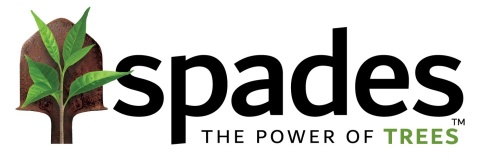Spades, a Specific Benefits Corporation (SBC), addresses climate change through reforestation and agroforestry projects worldwide, including in Latin America. Multiple projects, including one in Belize, are currently being developed with a capital requirement of $135 million.
Each project will consist of three parts:
- Protecting and monitoring existing forested habitats, working with their owners (often governments) to monitor forests using on-the-ground and satellite technology.
- Expanding forested habitats around these existing forests through replanting a mix of native tree species. In some cases, including in Latin America, this will include replanting mangroves in coastal habitats.
- Working with local farmers and smallholders to reforest parts of their holdings with fruit and other trees, aiming to develop 50% canopy cover within ten years.
Over time, each of these activities will generate carbon credits that are sold to investors, local governments, communities, and smallholders to generate returns. It is also possible for some projects to yield additional returns through the creation of sustainable wood stocks and agriculture in the planted buffer areas and agricultural zones.
Spades' project model is also designed to create long-term (e.g., 25+ year) sustainable forests which provide social impact, habitat protection, and climate mitigation, as well as other benefits like storm protection in select areas. Spades will work to achieve these benefits via a network of local tree growers, local and multi-national NGOs, and government ministries.
Spades is seeking to raise an initial USD 50 million from both institutional and private investors for its first Latin American project in Belize. Further projects are in the pipeline in both Central and South America, and the company will seek additional investment as they progress.
Among Spades’ typical project requirements:
- Start with at least 10,000 hectares/25,000 acres, with 10,000 new trees grown (not just planted)
- Biodiversity and habitat recovery, regenerative agriculture, sustainable timber, and carbon sequestration (even if not tradeable) included
- Local deforestation causes addressed (when applicable)
- Social, environmental, and economic impact aligned with the UN SDGs
Spades, a Specific Benefits Corporation (SBC), addresses climate change through reforestation and agroforestry projects worldwide, including in Latin America. Multiple projects, including one in Belize, are currently being developed with a capital requirement of $135 million.
Each project will consist of three parts:
- Protecting and monitoring existing forested habitats, working with their owners (often governments) to monitor forests using on-the-ground and satellite technology.
- Expanding forested habitats around these existing forests through replanting a mix of native tree species. In some cases, including in Latin America, this will include replanting mangroves in coastal habitats.
- Working with local farmers and smallholders to reforest parts of their holdings with fruit and other trees, aiming to develop 50% canopy cover within ten years.
Over time, each of these activities will generate carbon credits that are sold to investors, local governments, communities, and smallholders to generate returns. It is also possible for some projects to yield additional returns through the creation of sustainable wood stocks and agriculture in the planted buffer areas and agricultural zones.
Spades' project model is also designed to create long-term (e.g., 25+ year) sustainable forests which provide social impact, habitat protection, and climate mitigation, as well as other benefits like storm protection in select areas. Spades will work to achieve these benefits via a network of local tree growers, local and multi-national NGOs, and government ministries.
Spades is seeking to raise an initial USD 50 million from both institutional and private investors for its first Latin American project in Belize. Further projects are in the pipeline in both Central and South America, and the company will seek additional investment as they progress.
Among Spades’ typical project requirements:
- Start with at least 10,000 hectares/25,000 acres, with 10,000 new trees grown (not just planted)
- Biodiversity and habitat recovery, regenerative agriculture, sustainable timber, and carbon sequestration (even if not tradeable) included
- Local deforestation causes addressed (when applicable)
- Social, environmental, and economic impact aligned with the UN SDGs

